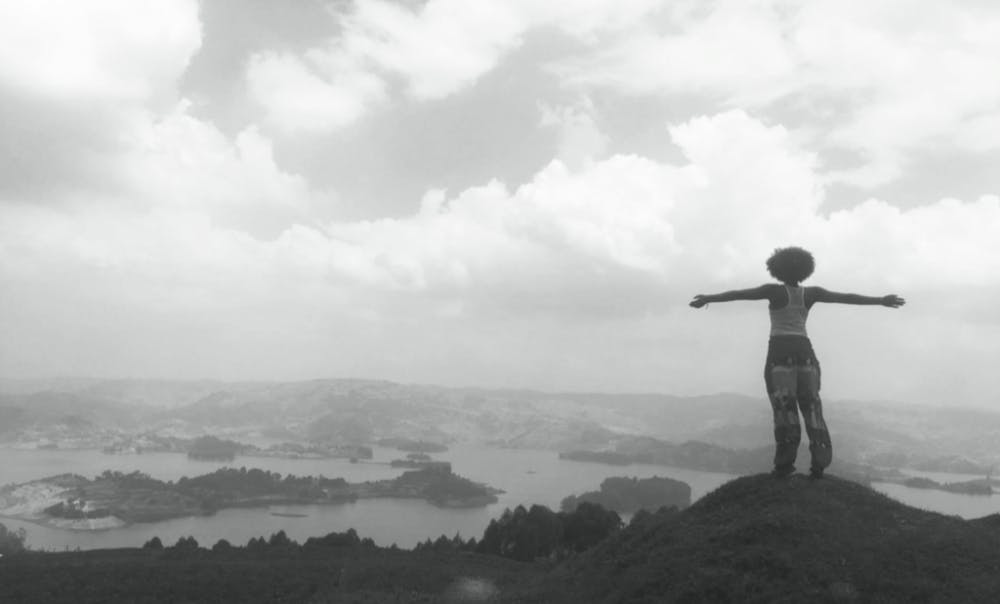Self-described “coastal person,” Naadiya Hutchinson chose to spend her summer in the second most populous landlocked country in the world: Uganda. Working with the Rakai Health and Sciences Program, Hutchinson has been spending her precious time away from school researching HIV and working on her documentary on black identity. Though she didn’t know what to expect coming into the job, she came to love her time there as well as the many people she met and befriended.
The Rakai district is the origin of HIV/AIDs in Uganda. Her work involved writing guidelines for how to notify a loved one that you have HIV/AIDS for the World Health Organization.
“We do data analysis around interviews to get people’s opinions and feelings on partner notification. We realized a lot of people talked about violence... when notifying their partner that they had HIV,” she said.
This thread of violence she found throughout her interviews went on to inform a second study on which age groups experience the most violence. Hutchinson said that one of things which shocked her most about the country was the prevalence of violence at all levels of a relationship.
“It’s almost like a social norm that people beat their wives or that wives beat their husbands. That violence is a normal part of a relationship. So I think that’s one of the hardest things that I’ve really struggled with, is how much violence is seen in relationships.”
Despite challenges along the way, Hutchinson came to really enjoy her time in the country and the people she met there. It is the little things, Hutchinson says, that surprised her, the small differences between American and Ugandan culture which she wasn’t expecting.
“Electricity goes out a lot, which affects the water so you don’t get hot showers all the time and you have to boil the water before you drink it so you don’t get sick,” she said. “But at the same time you can see all the stars in the sky. I’d take a cold shower just to be able to actually see how beautiful this world is.”
This difference in expectations and reality is part of what Hutchinson dealt with in her documentary which explores the phrase “Go back to Africa.”
“I might be black, but I’m not as dark as the other people around, and I don’t speak [the language], so they call me ‘mzungu’ and ‘mzungu’ means white person. So you go to Africa to be called a white person?” Hutchinson said. “I’d say a very common thing [people spoke about] is being a minority in a place where you should be a majority.”
However, though many of the people she interviewed felt like outsiders in Uganda, Hutchinson said that there is a difference between this feeling and the distance felt by many black Americans in the U.S.
“Colorism isn’t as important here as it is in the U.S. I might be a ‘mzungu,’ and that might mean that people could think that they could rob me more, but it’s not like the government is going to treat me differently, it’s not like I am going to be treated differently in the school systems and the housing market and anything like that as compared to the US, where a lot of blacks feel that and are experiencing a lot of racism,” she said.
Hutchinson spoke about the Ugandan people, contrasting both the social injustices against the LGBT+ community and women against the open and welcoming attitudes that she experienced first hand.
“People were sharing umbrellas, and people were sharing drinks and I think like this was the moment that I felt like, Africa was home, like I could live here forever and I’d be fine because home isn’t really the place. It’s more like the people and when so many people are so welcoming and so friendly, it’s really easy for a place to feel like home.” Hutchinson said, describing an African music festival she attended as one of the best moments she had experienced.
Hutchinson is already planning on going back to Uganda next summer to continue her work.





